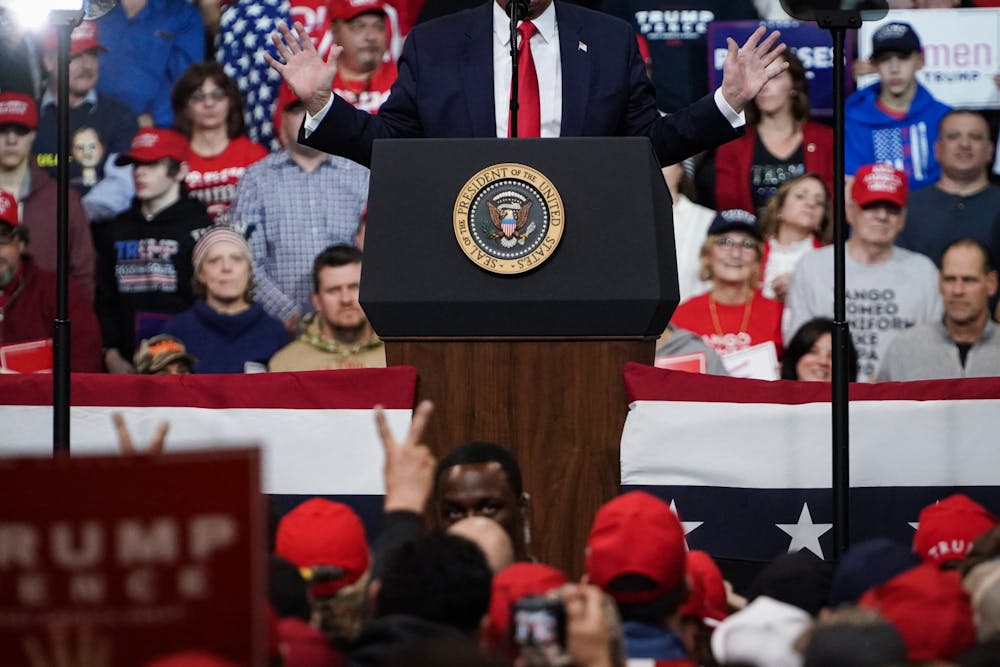
Like viruses, news spreads fast.
The moment President Amy Gutmann and Provost Wendell Pritchett sent out the infamous coronavirus email canceling classes and closing dorms, my phone blew up with texts in group chats and calls from friends. When I read the news, I felt robbed of my last semester of college. Like many seniors, there were so many things I envisioned doing: finally getting a reservation for the car table at Distrito, taking part in iconic Penn traditions like Walnut Walk, seeing my parents proudly clapping as I received my diploma. Now all of that is canceled. Penn was so special to me, and it’s as if I never got to say goodbye.
I was feeling a lot of things — a strange cocktail of sadness, sentimentality, bitterness, and anger. Originally, a lot of that anger was directed at Penn and other universities. How could they do this to us? Couldn’t they try literally anything else? As an antidote to my frustration, I began to look at the data and read all the reputable articles I could find. The conclusion I reached was that the real culprit wasn’t just our Ivy League administrators, but also the Trump administration’s complete failure to deal with this health crisis.
This is not to say Penn has in any way been perfect in handling the situation, especially with how it affects FGLI and international populations on our campus. However, my hope is that understanding the underlying reasons for the spread of the epidemic under Trump’s leadership can affect our future political engagement and policy priorities.
Let’s dig into the numbers.
In Trump's 2018 budget plan for public health, he slashed funding for the Center for Disease Control (CDC) by 17%, and more importantly, the part of the CDC responsible for managing global outbreaks by 80%. Trump also cut the vital Complex Crises Fund, a $30 million emergency pool of money for sending health experts all over the world to help manage global crises. Essentially, he abolished many of the healthcare initiatives and organizations put together by Obama while fighting the Ebola crisis, despite the fact that public health experts like Bill Gates warned that another epidemic is not a matter of if, but when.
To be clear, of all the possible epidemics we could have, coronavirus is much less destructive than the worst case scenario. It has a low mortality rate and generally affects the elderly and those with weakened immune systems. However, it still has the potential to kill millions of people and dramatically disrupt global supply chains, so it should be taken seriously.
When coronavirus was first recognized, Trump tried to downplay its significance, minimizing economic impact rather than taking preemptive measures. Trump’s efforts mainly revolved around getting the Fed to cut interest rates and pumping up the economy. In press conferences, he made claims that coronavirus was like the flu or that it is likely to disappear with warm weather, despite little evidence. This kind of behavior is deadly, figuratively and literally.
When it comes to pandemics, intervening early and flattening the curve are key. Several Penn policies may seem drastic but actually align with this idea. Preventing large gatherings and enacting policies prior to an outbreak are crucial to battling viral disease. On the other hand, President Trump's decision to delay action on coronavirus could cost lives, since early intervention is key to flattening the curve and preventing the overload of healthcare infrastructure.
Despite the chaos, Trump’s approval ratings have stayed at a relatively steady 42% as of Mar. 13, 2020, which is really surprising to me. I think of Trump as the reason we won’t be able to say goodbye to our friends, why our classes are now hosted over Zoom, why we won’t have Commencement, and why we might not be able to see our family members due to fear of infecting them. Looking at this graph, it doesn’t seem like America cares very much or blames the president at all. Well, I certainly do, and I hope we can take this experience in 2020 as a chance to elect a leader that is more forward-thinking, data-driven, and empathetic.
MICHELLE SHEN is a senior studying Computer Science in the Engineering school and Consumer Psychology in the Wharton school. Her email address is michelleshen@gmail.com
The Daily Pennsylvanian is an independent, student-run newspaper. Please consider making a donation to support the coverage that shapes the University. Your generosity ensures a future of strong journalism at Penn.
Donate






